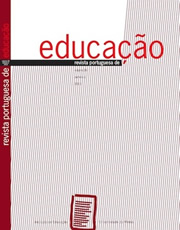PAst, PREsENt ANd futuRE of EDUCATIONAL GOVERNANCE IN THE AUTONOMOUS REGION OF MADEIRA
DOI:
https://doi.org/10.21814/rpe.2995Abstract
The consecration, on the Portuguese Constitution, of the Autonomous Regions came in the area of educational administration to point an ideological rupture, perhaps also a cultural tradition, with the centralist State. Moreover, it may be said that this reality was equally bring to the organizational dimension of the State, as a whole, analyzed by a prism of Education governance, also a will
and intention of a redistribution of the power between the center and periphery, and having as final objective to safeguard the respect for diversity and proximity of educational policies. Madeira has been, since the dawn of regionalization in education, ‘drawing in stages’, a gradual construction of a model of regional tendency, initially by replacement and after by creating, but whose evolution, after his consecration, there must now wait to see what policy makers intend to do it and know what sense can we expect in the future.
Keywords
Decentralization; Territorialization; Educational governance; Regionalization
Downloads
Downloads
How to Cite
Issue
Section
License
1. The authors preserve their authorship and grant the Portuguese Journal of Education the right to the first publication. The work is licensed under Creative Commons Attribution License that allows sharing the work with the acknowledgment of initial authorship and publication in this Journal.
2. The authors have the right to take additional contracts separately, for non-exclusive distribution of the published version of their work (e.g. to deposit in an institutional repository or as a book chapter), acknowledging the initial authorship and publication in this Journal.
3. The authors have the permission and are stimulated to post their work online (e.g. in an institutional repository or on their personal website). They can do this at any phase of the editorial process, as it may generate productive changes, as well as increase impact and article citation (see The Open Citation Project).
The work is licensed under Attribution-ShareAlike 4.0 International (CC BY-SA 4.0)




















